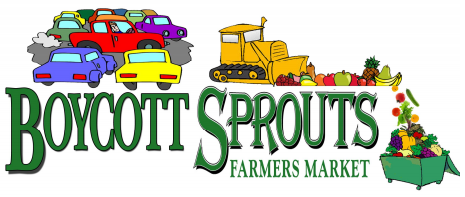Occupy the Farm Redux
You’re really doin’ some bang-up policework You ripped the whole damn garden out You got the rats out of your corn And let the vampires in your house You got a bug for son and daughter To always know the time and place And it don’t seem all that crazy Just the way the world is run today
Bang-Up Policework
Five years ago I wrote about the eviction of Occupy the Farm from UC Berkeley land on the same day the Denver City Council passed the “urban camping ban” to further criminalize homelessness in Denver. If you look at the URL of that post, you’ll see that I had originally titled it “A Depressing Monday.”
Back in 2012 I thought the eviction was the end of Occupy the Farm and never heard anything else about it until I came across a 2014 documentary about the project earlier this month. It turns out I gave up too early and Occupy the Farm has been one of the most successful of the camps inspired by Occupy Wall Street: the activists broke back onto the land in May 2013 to re-establish the farm. Despite two more raids by police, they refused the university’s comically bureaucratic attempts at co-optation, successfully got Whole Foods to back out of their development plans, and finally the university capitulated and has committed to preserving a plot of land including a little over an acre which has been turned into the UC Gill Tract Community Farm.
One of the more novel tactics the university used was to file a lawsuit against individual activists (which it later dropped). It’s silly, but much preferable to the Reagan approach of simply shooting activists with shotguns (I’m surprised the documentary didn’t point out the parallels between Occupy the Farm and the 1969 occupation of People’s Park).
Berkeleyside reported on the progress of the farm in the summer of 2005:
The farm aims to be a source of organic produce for anyone who lacks access in the East Bay. Volunteers have harvested 17,000 pounds of produce since June 2014. Today, about 30 different types of crops grow on just over one acre of land — everything from dry-farmed tomatoes and leeks to pineapple ground cherries, which are tomatillos that taste just like, well, pineapple.
…
The farm has seen seven field trips from nearby schools and has hosted interns and over 40 different workshops. Volunteers also supply food to the Berkeley Food Pantry, senior housing communities including Harriet Tubman Terrace and the Sojourner Truth Manor, and other community groups. (“UC Gill Tract Farm blooms amidst controversy” by Kathleen Costanza)
After Whole Foods backed out, the university did make a deal with Sprouts which protesters were unsuccessful in challenging (I believe the store opened for business this month). In an interesting contradiction which seems to have escaped the film-maker’s notice, the documentary begins by lamenting the lack of grocery stores in some neighborhoods (in order to make the case for urban farming) while many of the Occupy the Farm activists ended up spending much of their time protesting the construction of grocery stores.
The documentary is called “Occupy The Farm”. I paid $0.99 to watch it on Amazon. Review in California Magazine: “Getting a Front Row Seat at Occupy the Farm: The Movie”
